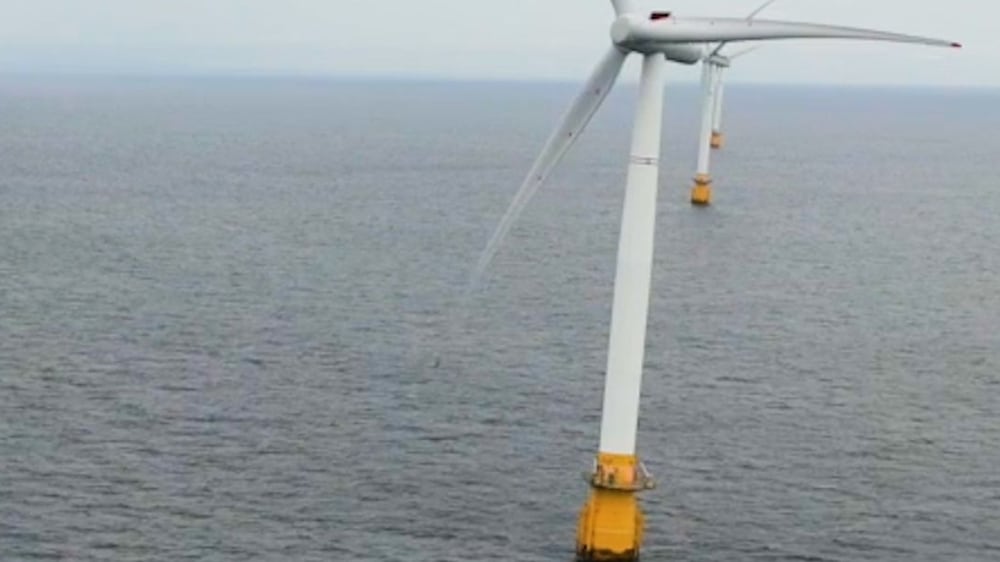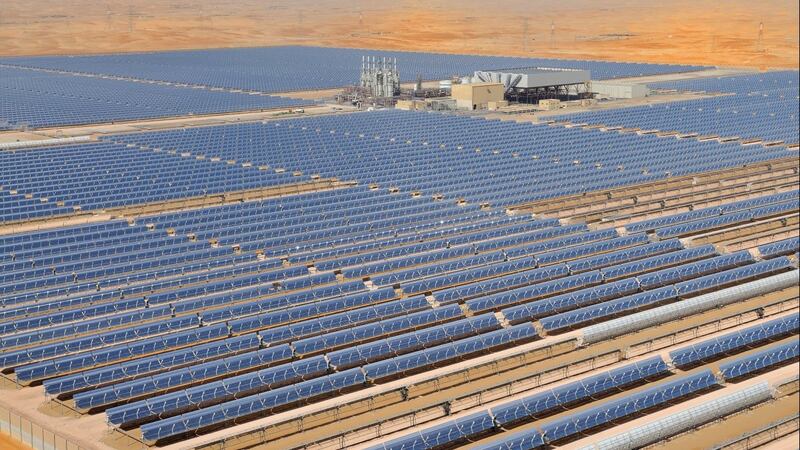Emirates Water and Electricity Company, known as Ewec, has said clean energy now accounts for more than 60 per cent of the total power it generates, in line with the UAE's drive to become net zero by 2050.
The milestone was achieved on December 20, with solar and nuclear energy stations producing 5.5 gigawatts of the total 8.6 gigawatts generated by the utility.
The development “is a true testament to Ewec’s strategic initiatives that prioritise carbon-free technologies in support of the UAE’s sustainable and economic objectives”, said chief executive Othman Al Ali on Thursday.
The UAE, the Arab world’s second-largest economy and Opec's third-largest oil producer, is prioritising the construction of clean energy plants to cut emissions and hit its net-zero target by 2050.
The Emirates is building the five-gigawatt Mohammed bin Rashid Solar Park in Dubai and the 1.5-gigawatt Al Dhafra station, the world’s largest single-site solar power plant.
In May, Ewec invited developers to submit expressions of interest for the development of a new solar photovoltaic plant in the Ajban area of Abu Dhabi.
The plant will be similar to the one in Al Dhafra in terms of size and generation capacity, said Ewec.
The Noor Abu Dhabi solar plant, another Ewec plant, and one of the world’s largest single-site solar power plants, also started commercial operations in 2019, generating about one gigawatt of electricity.
The UAE plans to invest $163 billion in clean and renewable energy sources over the next three decades.
Masdar-backed floating wind turbines brings more power to UK

Ewec forecasts that its solar projects, combined with the Barakah nuclear energy plant's contribution to the national grid, will reduce carbon emissions to about 20 million tonnes by 2025, from more than 40 million tonnes in 2020.
The nuclear plant's first unit began commercial operations in April 2021 while the second became operational in March 2022.
The third unit was connected to the UAE transmission grid in October 2022 with the fourth is set to become operational in the coming years.







